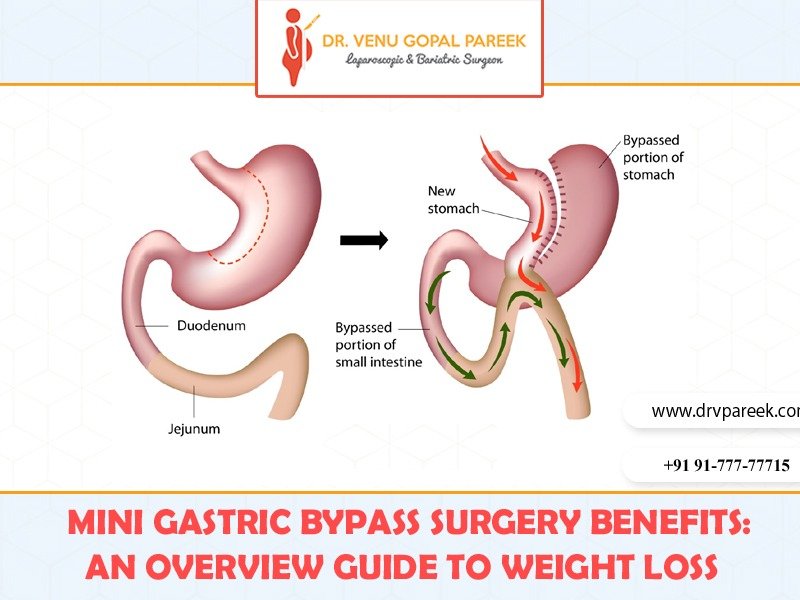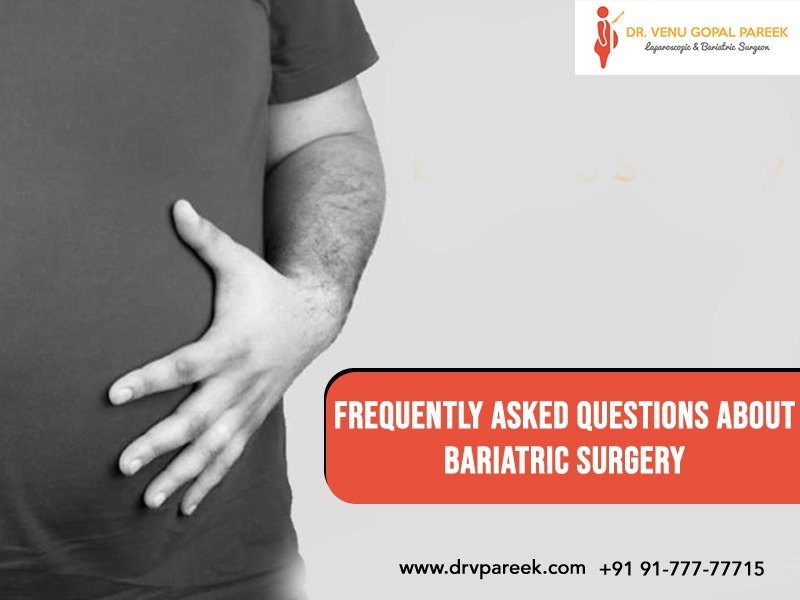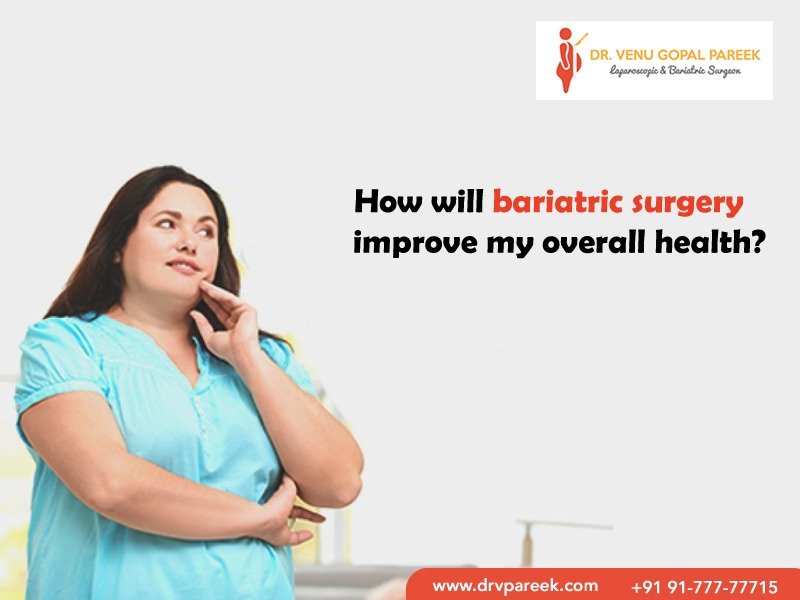
Mini Gastric Bypass Surgery Benefits: An Overview Guide to Weight Loss – Bariatric Surgery
The mini-gastric bypass surgery procedure has gained popularity in recent years. The mini-gastric bypass was initially developed in 1997 by Dr Robert Rutledge. Mini gastric bypass surgery is faster, technically more straightforward and has a lower complication rate than conventional gastric bypass surgery (2.9)% (2012 MGB study).
The mini-gastric bypass procedure aims to be restrictive with diet. This means that this procedure will reduce your stomach’s size and limit the amount you can eat. This procedure also reduces food intake and bypasses the small intestine by 150-200 cm depending on your BMI. Gastric bypass and mini-gastric bypass both are malabsorbent and restrictive procedures. Gastric band Is only restrictive methods.
This article explains you about Mini Gastric Bypass Surgery and its Benefits. Before that, let us see!
Why was the Gastric mini bypass started?

The mini-gastric bypass is designed to shorten operating hours, simplify procedures and reduce complications. Recent studies have shown that this cuts hours of the operation time. They can lead to similar weight loss (sometimes studies have demonstrated that mini-gastric bypass can lead to more weight loss), and lower the overall incidence of complications than gastric bypass surgery.
What is a Gastric mini bypass?

Mini gastric bypass surgery is one type of obesity bariatric surgery. This separates a small portion of the stomach from the main gastric sac in a tubular structure. Then it is connected directly to the small intestine, which passes through the main stomach and is about two meters from the small intestine.
Mini Gastric Bypass (MGB) is a simple, short, successful, and reversible laparoscopic gastric bypass surgery for weight loss. It was recently renamed to One Anastomosis Gastric Bypass. The surgery usually takes less time, with a shorter or similar hospital stay than a regular bypass.
Surgery Indications:
The indications are similar to standard gastric bypass surgery and may be recommended if diet, exercise, or medications do not contribute to weight loss. The surgery is for people with a BMI of 35 or more, or if you have obesity-related health conditions, such as:
- Type 2 diabetes
- Heart disease
- High blood pressure
- High cholesterol
- Sleep apnoea
- Non-alcoholic fatty liver disease
- Cancer
Surgical Procedure:

Like any other surgery, this mini gastric bypass surgery is performed under general anaesthesia. Your surgeon will make several small incisions on the abdomen. A laparoscope, a thin instrument with a light and camera on end, is inserted through one of the incisions so that your surgeon can see the internal organs of the monitor. Small surgical instruments are inserted through the remaining incisions to perform the surgery.
- The stomach is divided with a laparoscopic stapler. A large part of the stomach is no longer attached to the oesophagus and no longer receives food. Your new stomach is much smaller and shaped like a tiny tube.
- Around 150-200 cm of the intestine is bypassed. The surgeon will attach the remaining intestine to the new stomach.
- Food now flows into your small tubular stomach and then passes between the 150-200 cm of the intestine, where it continues normal digestion throughout the rest of the intestine.
- This cycle allows food to pass through the lower stomach, duodenum, and small intestine parts. The incision is closed with stitches at the end of the procedure.
Postoperative care:

You will need to stay in the hospital for about 1 to 2 days after mini-gastric bypass surgery. Your doctor will prescribe pain medication to keep you comfortable. You will be given instructions on wound care, diet, and activities such as:
- Keep the incision area clean and dry.
- Avoid strenuous exercise and heavy lifting.
- You may not be able to eat anything for the first 1 day. After that, you will be given a liquid diet followed by a puree or soft food.
- Drink water throughout the day to avoid dehydration.
- Follow a diet provided by a dietitian.
- Follow an exercise program as instructed by your surgeon to maintain weight loss.
Benefits

- Mini gastric bypass surgery can help you lose about 5 to 8 kg per month for the first year after surgery. You will lose weight gradually by following a healthy diet and exercising regularly.
- Surgery will also help you manage obesity-related health problems more aggressively.
- In contrast to RYGB, it is easily possible to fully reverse the procedure smoothly.
- Shorter uptime.
- Fewer intestinal diversions.
- Smaller anastomosis (intestinal connection), which theoretically means a lower chance of complications.
- It’s technically easier for surgeons.
- Similar weight loss and recovery.
Conclusion:
Although the surgery itself will result in positive weight loss, it must be accompanied by continuous lifestyle changes to ensure good health in the future. You need to pay attention to diet and exercise and ensure that your body gets the nutrients it needs with reduced digestive activity.
Dr Venu Gopal Pareek will be happy to assist you with all aspects of the operation, including preparation and recovery. He has a team of experienced surgeons, nutritionists, specialists and auxiliary staff, Dr Venu Gopal Pareek is committed to providing you with the best possible care. This includes clear communication and a comprehensive overview of all steps in your weight loss process.
Our team of experienced nutritionists will also provide tailored nutritional advice so you can optimize weight loss and overall health after your bariatric procedure. For more information, contact Dr Venu Gopal Pareek at 091777 77715.







